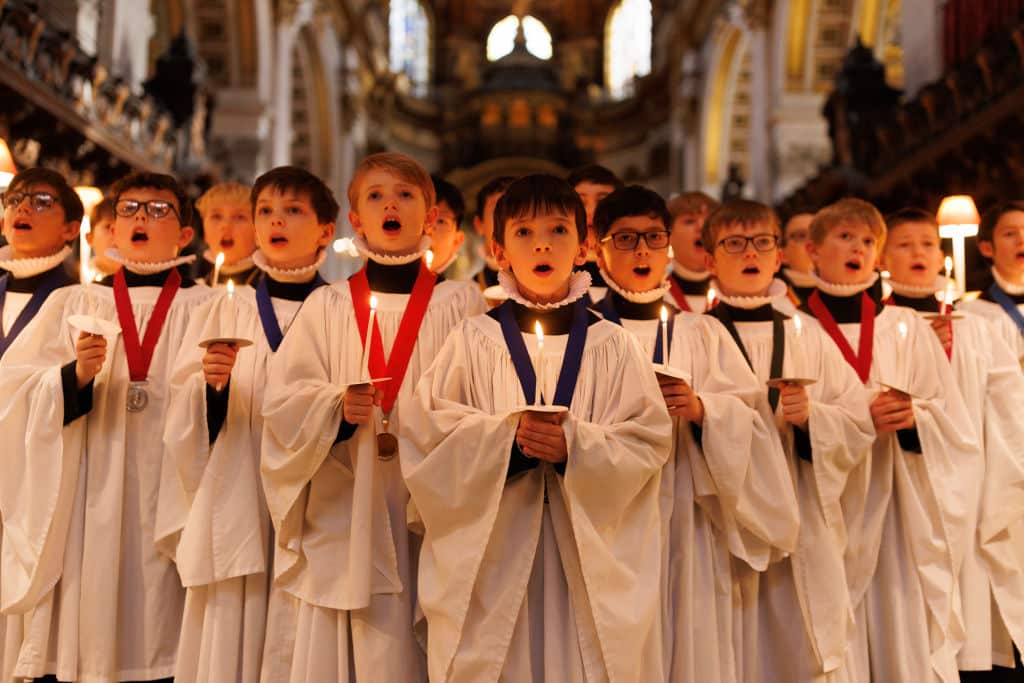The recently announced plans of the UK government to apply VAT to private schools could pose a direct threat to the future of cathedral choirs.
It means a 1,000-year legacy of priceless choral education could be imperilled, amounting to an "unthinkable" loss for British culture, Peter Kingston, Musical Director of Somerset Choral Society and former organist of Downside Abbey, <a href="https://www.telegraph.co.uk/music/classical-music/keir-starmer-vat-raid-cathedral-choir-schools/"><mark style="background-color:rgba(0, 0, 0, 0)" class="has-inline-color has-vivid-cyan-blue-color">writes</mark></a> in the <em>Daily Telegraph</em>.
For centuries, children with musical gifts have had their lives transformed through the opportunity to join cathedral choirs, many of whose places were made possible by scholarships that relied on private schools having an exemption from VAT. But that access may soon be out of reach for many come the end of the exemption from next January thereby adding 20 per cent tax on current costs.
This could, warns Kingston, as do others, directly affect the quality of Britain’s choral tradition.
“There is no doubt in my mind that if choir schools are placed under any threat of existence, the whole tradition of English choral music will be at risk,” Yvette Day, head of King’s College School, Cambridge, and chairman of the Choir Schools’ Association, tells the <em>Telegraph</em>.
For Catholics, it means the music that assists the celebration of the Sacred Liturgy could likely suffer, and, in turn, the beauty of the worship it offers to God. While many children from poorer Catholic families could be prevented from reaching their full musical potential.
Cathedral choirs are not only educational institutions, but also integral to Britain’s musical and Christian legacy.
The choir schools associated with Britain's cathedrals provide children between the ages of 8 and 13 with unparalleled musical training, offering them the opportunity to sing in some of the most prestigious and beautiful settings in the country.
Cathedral choirs have produced generations of talented musicians, singers, conductors and composers, some of whom go on to have international careers in music.
A recent survey of parents at Wells Cathedral School, one of the country’s most prestigious institutions, revealed that the addition of VAT could result in a 30 per cent drop in pupil numbers, reports the <em>Telegraph</em>.
“It will be devastating,” says Alastair Tighe, the school’s head. “We will see successive future generations of children unable to realise their talent and potential in the way their predecessors have done.”
This reduction in enrolment would not only affect the choirs themselves but also the broader musical culture of the country. Without a steady influx of talented choristers, cathedral choirs may struggle to maintain the high standards of musical excellence for which they are renowned.
In addition, the outreach programs many cathedrals run, whereby organists and choir directors visit local primary schools to identify potential talent, could also be affected. With fewer places available in choir schools, there will be less incentive to seek out children from diverse backgrounds, and who will lose out on being given the opportunity to join these choirs.
The potential decline in cathedral choirs comes at a time when England’s musical culture is already under strain, Kingston describes. The absence of choral singing in many state schools and the decline of parish church choirs has "severely reduced the number of youngsters reaching adulthood capable of part singing".
As a result, cathedral choirs have become one of the last bastions of this tradition. Without them, a significant part of England’s choral heritage could be lost.
Cathedral schools are already struggling to offer scholarships to students from more modest backgrounds. At Wells, the annual boarding fees for Year 9 students are currently just under £42,000. Even with existing scholarships and additional financial assistance, many families simply cannot afford these fees.
Historically, cathedral choir schools have been able to offer generous scholarships, often funded by ancient endowments, to ensure that talented children from all backgrounds had access to this life-changing opportunity. However, over the years, the soaring costs of education have placed increasing pressure on these resources. Today, most choir schools are reliant on a combination of scholarships, bursaries and private funding to cover the high cost of education.
At present, many cathedrals are still able to subsidise a significant portion of their choristers' educations. For example, Chichester Cathedral covers 25 per cent of the boarding fees for its 20 choristers, and for 17 of those students, additional financial assistance is provided, allowing them to attend regardless of their families' financial circumstances.
Once the new tax is introduced, though, many choir schools may no longer be able to offer the necessary financial aid to families, meaning that only the wealthiest parents will be able to afford to send their children to these institutions. This will severely limit the talent pool from which these schools can draw, with fewer middle- and working-class families able to afford the fees.
If the number of choristers declines and the quality of these choirs diminishes, it will not only affect Britain’s cultural standing but also its global reputation as a leader in choral music.
British cathedral choirs are recognised worldwide for their excellence, and many have achieved international acclaim. Choirs such as those at Westminster Cathedral, Westminster Abbey, St Paul’s Cathedral and King’s College Cambridge are considered among the finest in the world. These choirs regularly perform for audiences around the globe and are often held up as examples of the best that British choral music has to offer.
But with the VAT imposition, the risk is that many talented children from modest backgrounds will no longer have access to the world-class musical training provided by these institutions. This, in turn, could lead to a decline in the number of cathedral choirs, putting at risk a centuries-old tradition that is central to England’s cultural and musical heritage.
<em>Photo: Choristers at St Paul's Cathedral in London, England, 20 December 2023. The Choristers of St Paul's have a vibrant programme of Advent and Christmas services, performing seasonal favourites like 'Hark the Herald Angels Sing' and 'Once In Royal David's city'. (Photo by Dan Kitwood/Getty Images.)</em>



